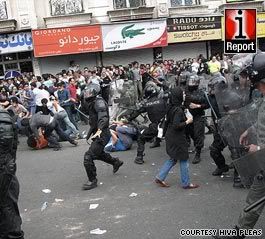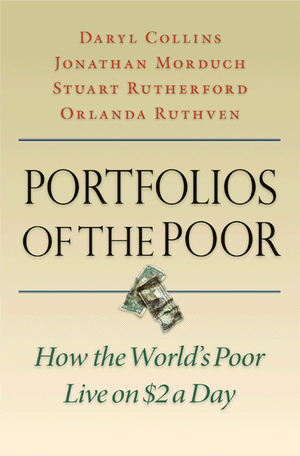
Years. 1956. 1968. 1979. 1989. 1990. 1997. As events and protests unfold following the disputed Iranian presidential election I’m reminded of years and moments when the forces of totalitarianism and popular will stared each other down. Each moment contained its own unique historical tapestry and illustrated humanity’s common aspirations to live in dignity.
With each instance there is wonderment and hope that history will turn the page for the better. History teaches however that such hopes are typically elusive.
Hungary: October/November 1956 - America falsely suggests it would support an uprising against Soviet oppression and backs away. The Kremlin initially appeared ready to accept Hungary’s popular will and instead opted to crush it. And a generation of freedom is lost.
Czechoslovakia: January to August 1968 - In January, reformist Slovak Alexander Dubcek comes to power and unleashes the “Prague Spring.” Citizens are granted more freedom as the economy is partially decentralized and restrictions on speech and the media are loosened. In April, Dubcek refers to his political program as “socialism with a human face.” On August 21st, the Soviet Union and members of the Warsaw Pact invade Czechoslovakia and Dubcek’s reforms are terminated. It became known as the “Brezhnev Doctrine,” as Moscow claimed the right to intervene any time a socialist country appeared ready to lose its way and embrace capitalism.
China: April/May 1989 - Twenty years ago the death of a pro-market, pro-democracy, and anti-corruption official, Hu Yaobang, sparks an uprising. A million people gathered at Tiananmen Square to mourn Hu. The movement lasts seven weeks, from Hu's death in mid April until tanks cleared Tiananmen Square on June 4th. It’s a young people’s movement, as one unarmed man is shown in footage worldwide obstructing a tank with his defiance. Many are killed, wounded and “rehabilitated” following these events as Beijing cracks down.
The end result is an uneasy truce in which China’s economy is liberalized while the Communist Party maintains its hold onto power. Whenever corruption or popular discontentment is poised to rupture the truce, Beijing exploits the nationalist card with respect to Taiwan’s sovereignty or uses America and the West as a foil legitimizing their rule. Today, China finances America’s deficit with their expanding economy even as discontentment and the Internet threaten to undermine the regime’s authority.
Eastern Europe: 1989-1990 - The proudest feeling I ever had about my country took place in March 1990. While studying abroad in England I visited Berlin and Poland. “Velvet Revolutions” had swept Eastern Europe in 1989 and Poland was the first domino to fall that summer as our bipolar world disintegrated. Even so, I was initially more enthusiastic about visiting Berlin. By March 1990 Poland wasn’t really in the news anymore following more dramatic events in Germany, Czechoslovakia, Hungary and Romania. Nonetheless, the exhilarating feel of history was intoxicating.
It seemed everyone I met in Poland, from the host family I stayed with, to the courageous Solidarity activists, referred to America as their model and inspiration. Shipyard workers and university students my age peppered me with questions about our model of government laws, society and material wealth. I had to convince several Poles that the Miami Vice television program was not representative of America as a whole. How strange to watch Miami Vice on Polish television with my host family as a single male voice overdubbed all the characters!
One crusty fifty something activist told me that, “Your Constitution was stronger than Moscow’s tanks.” Lump in your throat stuff from someone who had confronted totalitarianism since I was in elementary school when the Gdansk shipyard workers rose up in 1981. Even so, the challenges ahead for Poland and Eastern Europe seemed nearly impossible to overcome.
The legacy of Soviet style industrialization was making the mucus come out of my nose black while I toured the country. There were more consumer goods available than before but insufficient resources to meet the demand. I left Poland feeling inspired by their courage but skeptical that the transition could be pulled off. I also worried that the forces of nationalism would reemerge in Eastern Europe following the collapse of communism.
The transition to market oriented democracies has been rough at times for Eastern Europe. Alas, the breakup of Yugoslavia resulted in genocide and bloodshed. Czechoslovakia is no longer a single country and the specter of the Russian Bear is worrisome once again. There was the tumultuous Ukrainian presidential election and Orange Revolution in 2004-05 in opposition to Russia’s imperious manipulations. Nonetheless, democracy appears to have largely taken hold but with the same challenges of transparency, corruption and economic fairness confronting all nations
South Africa: 1990 to 1994 - In 1990 South Africa's President, F.W. de Klerk initiated the systematic dismantling of the racist Apartheid regime. Nelson Mandela, formerly imprisoned by the Apartheid government prevailed in South Africa's first democratic election in 1994. With respect to facilitating reconciliation between the newly empowered black majority and the deposed white minority, Mandela's leadership is a model of statesmanship. Unfortunately, after fifteen years of corruption and incompetence, millions of black South Africans live in poverty as the AIDS pandemic plagues their country.
Iran: 1979, 1997 and 2009 - And that brings us back to Iran. Most readers here should be familiar with the history. A brief snapshot however. In 1953 an American and British orchestrated a coup that replaced Iran’s parliamentary democracy with a monarchy led by Shah Mohammad Reza Pahlavi. America’s CIA trained his secret police known as SAVAK to preserve the Shah’s power. Hence, for over twenty-five years the West had a staunch ally in the oil rich Persian Gulf during the Cold War. Popular discontent however facilitated the demise of the Shah’s regime and he is forced to leave the country in January 1979.
Ayatollah Ruhollah Khomeini, formerly exiled by the Shah returns in February and ultimately becomes Iran’s Supreme Leader. The brutality of the Shah’s regime is replaced with an even more oppressive Islamic theocracy. Khomeni’s consolidation of power is especially brutal. In November 1979, Iranian students seize the American Embassy and take hostages resulting in thirty years of estrangement between the former allies. A catastrophic eight year war with Saddam Hussein’s Iraq in the 1980s leaves Iran with a disproportionately youthful demographic.
President Mohammad Khatami's 1997 landslide victory generates hope among Iran's young for a new era. Many are hoping Khatami will be Iran’s Gorbachev resulting in a rapprochement with the West. Khatami and his supporters are unable to overcome the conservative forces arrayed against them. President George W. Bush further undercuts Iranian reformers with his reactionary policies following 9/11. Mahmoud Ahmadinejad prevails in 2005 under the banner of economic populism and social conservatism. He becomes an object of ridicule within his own country and an international embarrassment as he denies the Holocaust and openly threatens Israel’s destruction.
Nobody with any horse sense believes Ahmadinejad legitimately defeated his reformist rival, Mir Husein Moussavi in a landslide. Today, Iran's Supreme Leader Ayatollah Ali Khamenei gave his support to the outcome of the country's presidential election. Clashes are
currently taking place however between the police and Moussavi’s supporters.
Obama’s diplomatic initiatives with Iran appear stalled until events shake out. Iran’s sham of a democracy has been exposed as illegitimate. We always knew that Iran’s elections were severely flawed as presidential candidates had to pass an ideological purity test to be permitted to compete. Initially, Moussavi appeared to be a clever tactic for dissenting impulses to have a means of acting out without threatening the regime’s hold on power.
Instead, a genie has been unleashed and the only way to put it back in its bottle is with brute force. Use of such force as China did in 1989 will only further alienate the population from the regime and isolate Iran even more from the world.
Obama is playing it cool at present and watching events unfold. In fairness to President Obama, America’s track record in intervening in Iranian affairs is not good. Our coup in 1953 was both immoral and strategically disastrous. Also, Obama’s foreign policy, for all the pretty rhetoric is reminiscent of George Herbert Walker Bush’s. It’s predicated on “stability” rather than encouraging grass roots movements against oppression.
And it’s hard to conduct business with a country when an uprising is taking place. So, it is understandable that the president is risk adverse. America erred in 1956 with Hungary and many died when we were not willing to intervene on their behalf. America at present is fighting two wars and doesn’t possess the assets to intervene in a meaningful way. Suggesting otherwise would be irresponsible and might even undermine opponents of the regime. If he acts rashly the end results could be disastrous. Yet, if Obama remains a passive actor, an opportunity could be missed.
Obama’s recent speech in Cairo is partially a catalyst to events on Iranian streets today. With an American president professing respect and conciliation towards the Islamic world, the rationale for Ahmadinejad as well as maintaining a bellicose posture against the West no longer seemed necessary. The recent election in Lebanon also suggested a response to Obama’s speech. Meanwhile, a viable constituency for ending Iran’s isolation certainly exits as illustrated by the 2009 campaign. Hence, Iran’s governing elite is obviously spooked by Obama’s speech, the Lebanese election and the increasing street activity of Moussavi’s supporters.
How will history turn? Is this a revolution in the making or will Iran’s mullahs successfully crack down as the Chinese communists did in 1989? China’s economy was large enough to survive the world’s condemnation but could Iran absorb the repercussions of a brutal crackdown? Or will Iran’s ruling elite come up with face saving pragmatic compromises to ensure their power for another generation? Sadly, a "Velvet Revolution" like we saw in Eastern Europe in 1989 with limited bloodshed seems unlikely.
Perhaps, Iran’s ruling establishment will manufacture a crisis with the United States to rally nationalist support on its behalf. Does Israel’s Netanyahu benefit from Ahmadinejad’s victory or will a popular uprising in Iran end Israel’s ability to distract from their oppression of the Palestinian people?
The possibilities, opportunities and dangers are endless. And the stakes couldn’t be higher. One thing is for sure: far better to have Barack Obama and Joe Biden in the White House instead of the irrational John McCain and insipid Sarah Palin. I don't always agree with Obama's centrist like approach but at least he has a cool head.
 According to the World Bank, almost forty percent of humanity lives on a daily income of less than two dollars per day. Another 1.1 billion scrape by on less than one dollar per day.
According to the World Bank, almost forty percent of humanity lives on a daily income of less than two dollars per day. Another 1.1 billion scrape by on less than one dollar per day.
